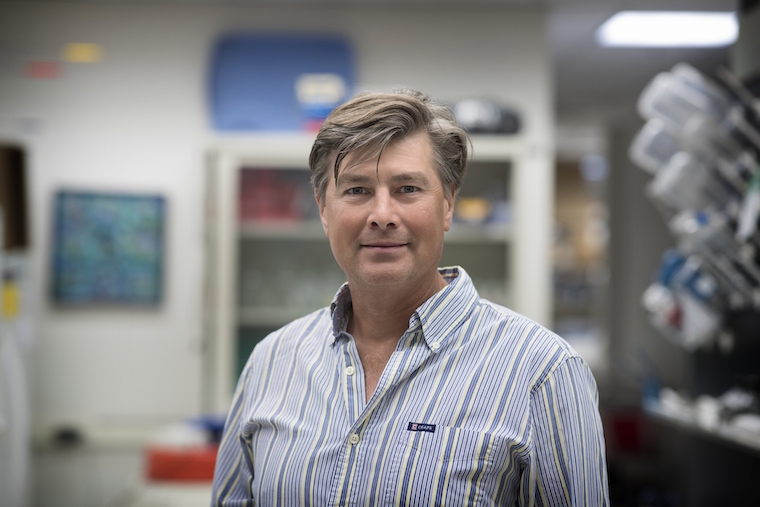Our P. Todd Stukenberg has discovered an organelle inside our cells that helps ensure our genetic material is sorted appropriately as cells divide.
For those whose memories of high-school biology are a little hazy, organelles are structures inside cells that perform specific functions. The nucleus is an organelle, as are mitochondria, the powerhouses of cells. (I was always partial to the lysosome, the garbage dump/recycling center of the cell.)
Unlike those three, the new organelle we’ve discovered has no surrounding membrane. As such, it’s properly described as a non-membranous organelle. Its function is to ensure the correct placement of microtubules that pull apart genetic material as cells divide. This makes sure the resulting cells all have the correct number of chromosomes.
This organelle comes and goes as needed. It forms on chromosomes during cell division (a process known as mitosis) and disappears when its work is complete.
Here’s the mind-bending part: The organelle is like a drop of liquid that forms inside other liquid. These droplets act as mixing bowls, concentrating certain cellular ingredients to allow biochemical reactions to occur in a specific location.
“Certain things will be recruited into it and other things will be excluded,” Stukenberg explained. “The cells enrich things inside the droplet and, all of a sudden, new biochemical reactions appear only in that location. It’s amazing.”
It’s tempting to think of the droplet like oil in water, but it’s really the opposite of that. Oil is hydrophobic – it repels water. This new organelle, however, is more sophisticated. “It’s more of a gel, where cellular components can still go in and out but it contains binding sites that concentrate a small set of the cells contents,” Stukenberg told me. “Our data suggests this concentration of proteins is really important. I can get complex biochemical reactions to occur inside a droplet that I’ve been failing to reconstitute in a test tube for years. This is the secret sauce I’ve been missing.”
The organelle plays an important role in preventing cancer. In cancer, the microtubule repair process is defective, which can cause cancer cells to become more aggressive. The good news: Stukenberg has already developed tests to measure the amount of chromosome mis-segregation in tumors, and he hopes that this might help doctors pick the best treatment. “We have a way to identify the tumors where the cells are mis-segregating chromosomes at a higher rate,” he said. “My hope is to identify the patients where treatments such as paclitaxel are going to the most effective.”
Having looked at breast cancer already, he next plans to examine this odd organelle’s role in colorectal cancer.
